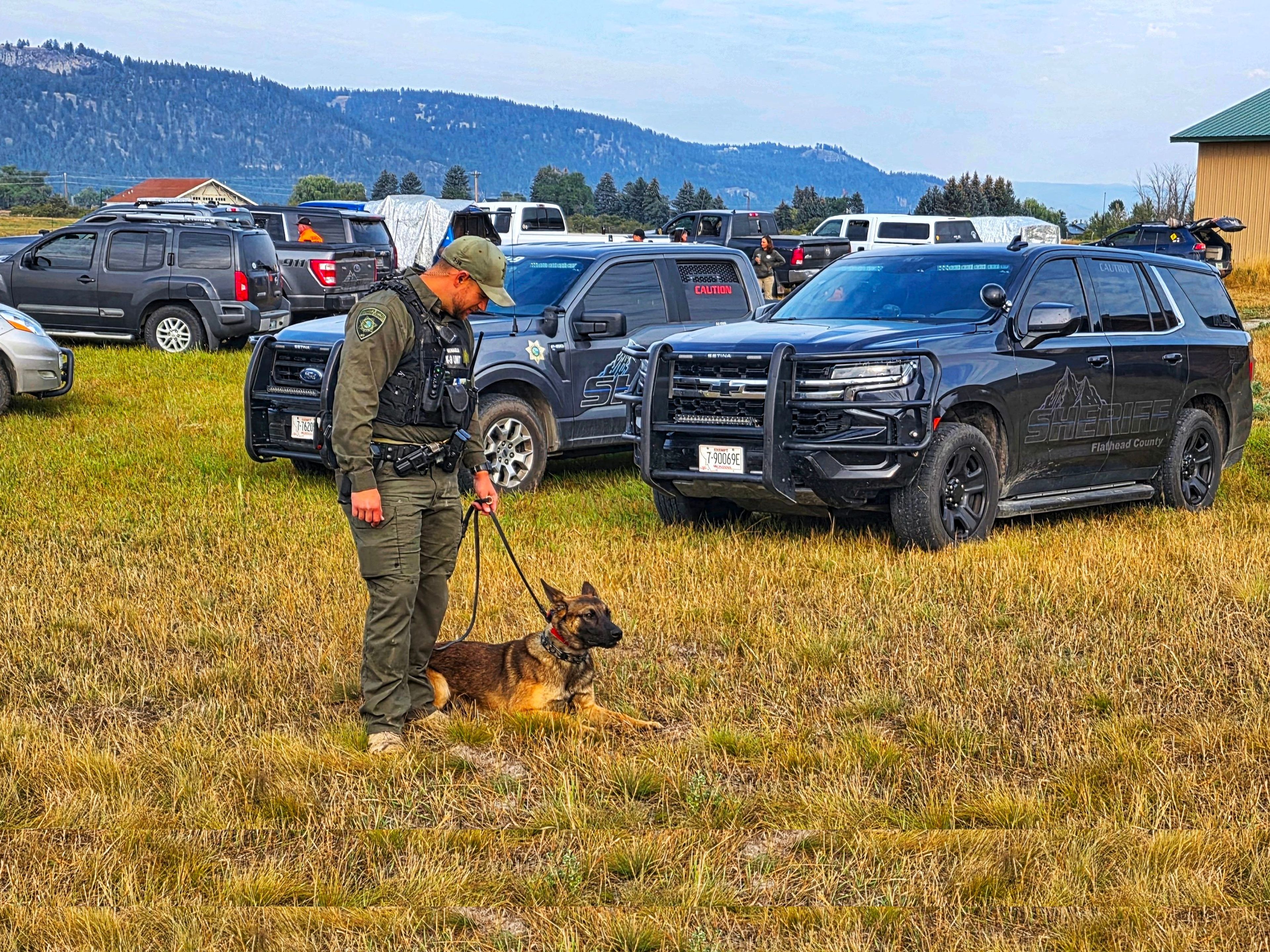
What We Do
we help the dogs help you
The Flathead K9 Foundation raises money to train, certify, equip, deploy and care for the extraordinary K-9s who protect public safety and provide critical life-saving services for the Flathead and surrounding communities.
The cost to maintain one of these highly skilled dogs can run into many thousands of dollars per dog per year, and the initial cost of purchase and training is even higher. Without our support, the specialized training and equipment, annual certification and deployment expenses, and emergency veterinary care would be paid for completely out-of-pocket by volunteer Search & Rescue K-9 handlers and only partially subsidized for Law Enforcement K-9 handlers.
OUR COMMITMENT
The Flathead K9 Foundation is committed to relieving the financial burden placed on our Search & Rescue and Law Enforcement K-9 handlers by raising the money necessary for our K-9s to be highly trained and fully equipped with whatever they need when the call comes.
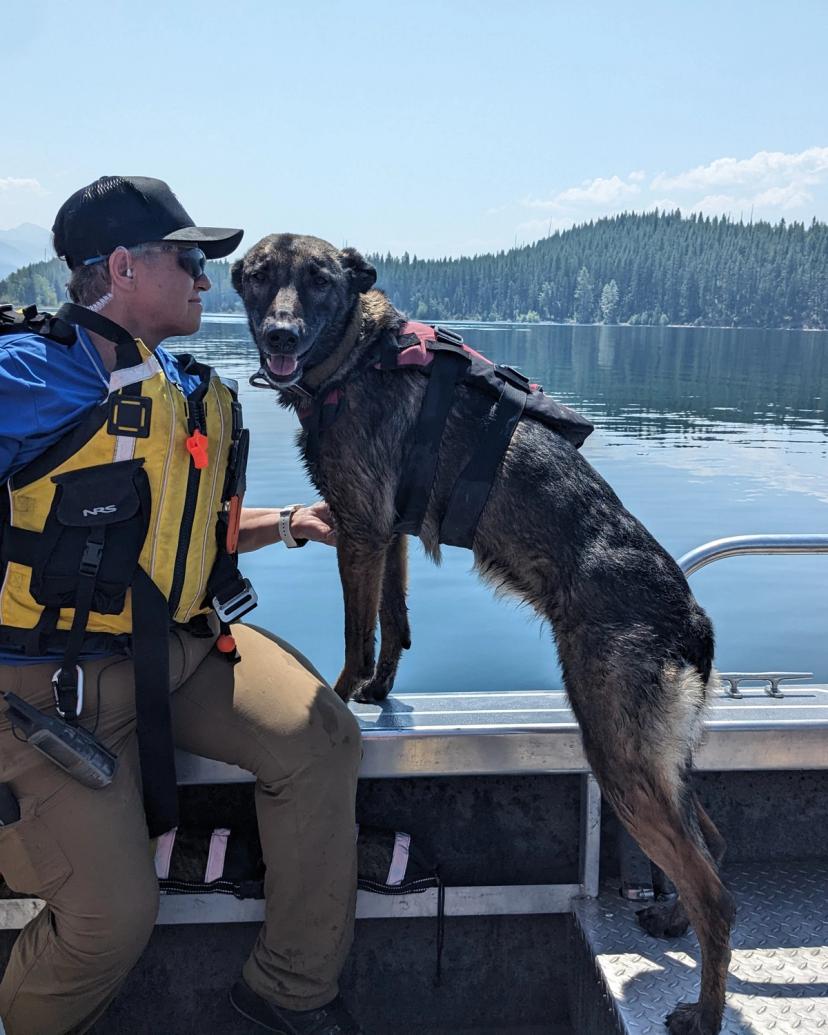
Specialized Training
search & Rescue
Our Search & Rescue (SAR) K-9s specialize in four different disciplines: Tracking, trailing, live find area search, and human remains detection and recovery. All require obedience, agility, scent detection, and a trained final response (alert). The dog learns to detect and alert to a predetermined scent while the handler learns to manage the dog, navigate the terrain, and interpret the dog’s alerts.
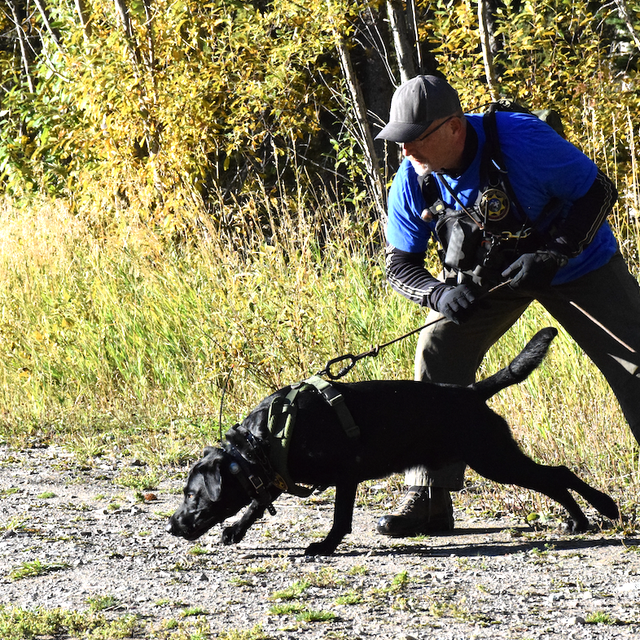
Track
Tracking dogs are trained to follow the scent left on the ground when a person walks. They learn to discriminate between the specific scent of their subject and all other smells. They are generally on lead and use a scent article such as a piece of clothing to imprint on their subject.
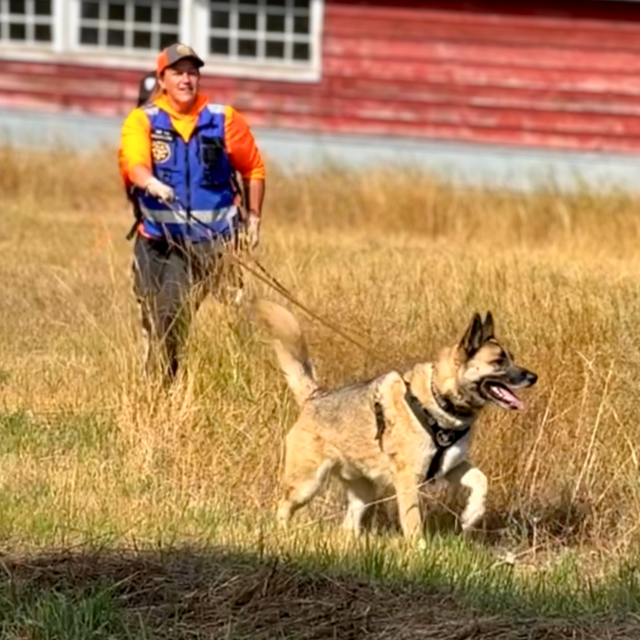
Trail
Trailing dogs are trained to use both the ground scent that a tracking dog follows as well as airborne scent particles to locate a person. Just like tracking dogs, they are trained to isolate a specific human's scent and discriminate between it and all other smells. Trailing dogs may be worked on or off lead, making them more flexible and allowing them to cover a wider area.
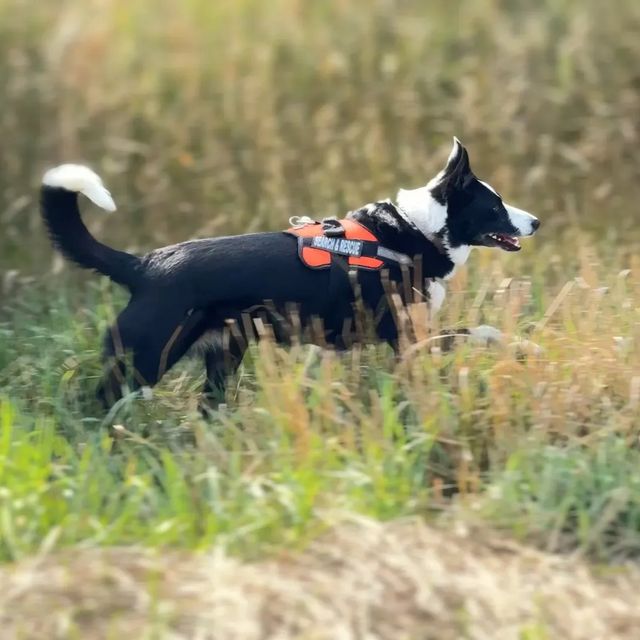
Search
Live find area search dogs are trained to cover larger areas of land off leash using their handlers as a guide and the wind to help detect live human odor. They use airborne scent particles to locate a specific person, or in the absence of a scent article are trained to locate any person within their search area.
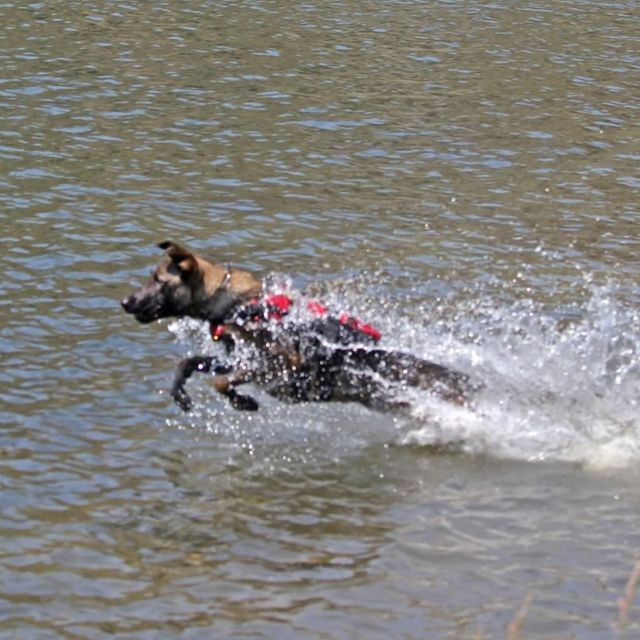
Recover
Human remains (cadaver) detection dogs require specialized training that focuses on the scent detection of human remains including blood, tissue, and bone fragments at various stages of decomposition. These dogs learn the difference between human remains versus the remains of other animals, and will only alert to human tissue.
Law Enforcement
Our Law Enforcement K-9s perform crucial tasks that keep our community and our officers safe. They can locate hidden narcotics, firearms, or explosives; as well as perform threat detection, officer protection, and criminal apprehension. These dogs are highly disciplined, with extensive obedience training as well as specialized training in their areas of expertise.
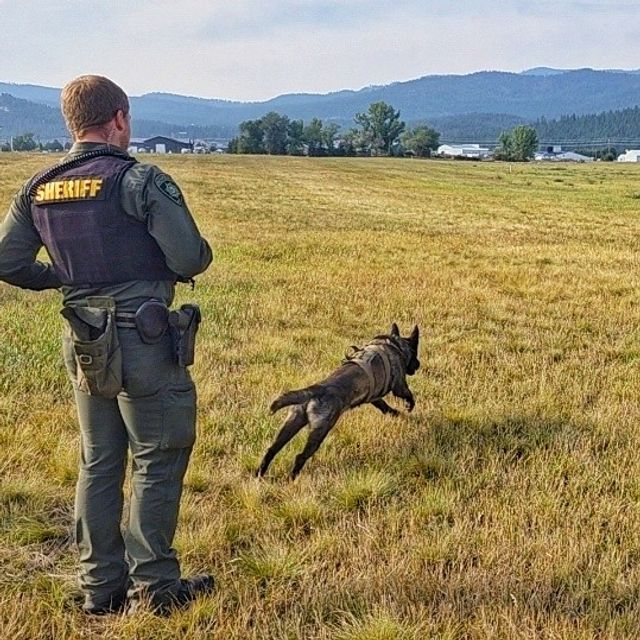
patrol
Patrol K-9s are trained to quickly locate dangerous suspects attempting to evade arrest. Patrol dogs track a suspect by following scent particles on the ground. They may or may not use a specific scent article from their subject, often imprinting off the last known location where the subject walked or ran. A Patrol K-9 is also trained in Apprehension.
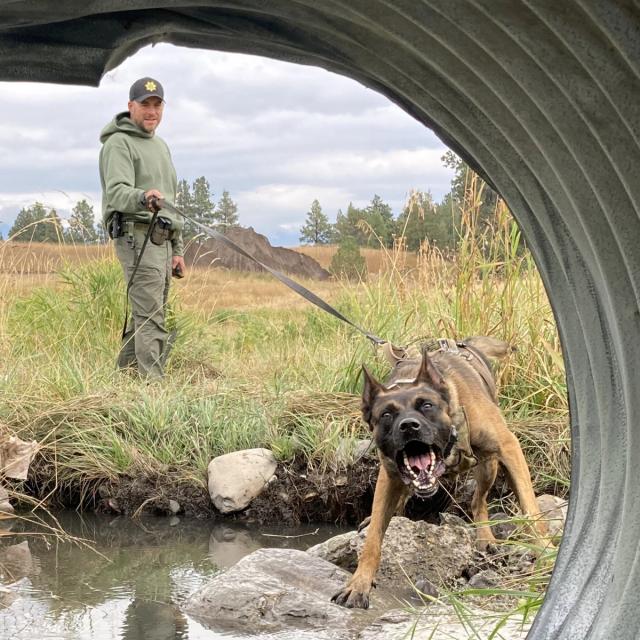
apprehension
Apprehension K-9s, like Patrol, are trained to quickly locate dangerous suspects attempting to evade arrest. They are trained to immobilize and detain a suspect until law enforcement officers can take them into custody. These dogs increase the odds of suspect compliance without an escalation of force, which keeps both the suspect and law enforcement officers safer.
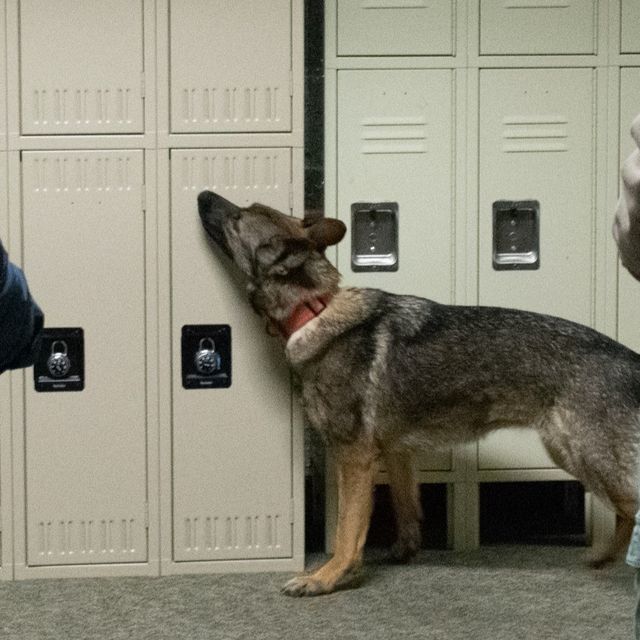
detection
Detection K-9s are trained to locate and alert on specific odors such as narcotics, explosives, or firearms. Narcotics K-9s help seize large quantities of dangerous drugs every year. Explosives K-9s perform searches of suspicious packages, respond to bomb threats and perform pre-event sweeps. Firearms Detection K-9s are trained to detect the chemical compounds in gunpowder, ammunition, and weapons cleaning solvents.
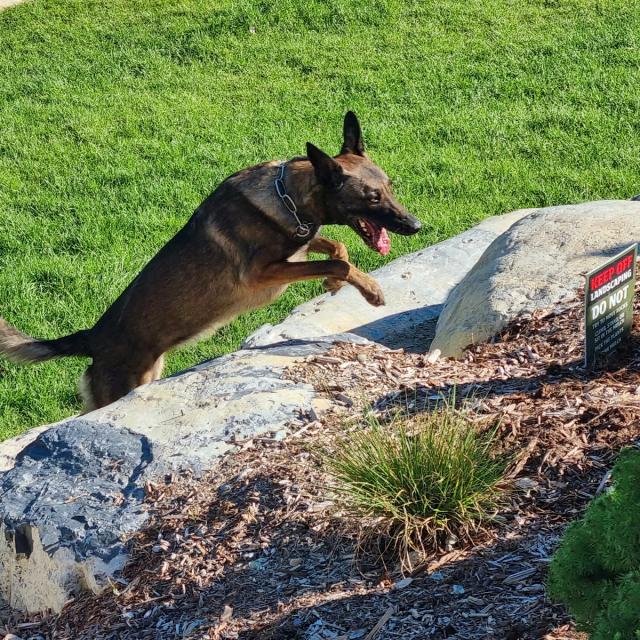
evidence recovery
Similar to other Detection K-9s, an Evidence Recovery K-9 is trained to locate and alert on specific odors associated with human evidence. These dogs assist with criminal investigations by locating lost, discarded, or hidden items at a crime scene such as weapons, clothing, shoes, keys, phones, or electronics.
Certification
The Flathead County Sheriff’s Office sets high standards for certification criteria in all K-9 Search & Rescue and Law Enforcement disciplines. K-9s and their handlers certify annually, and no K-9 team can be deployed unless all of their certifications are valid and up-to-date. Support from the Flathead K9 Foundation makes it possible to bring the certification evaluator to Flathead County, rather than forcing K-9 handlers to travel across the state for their annual certification.
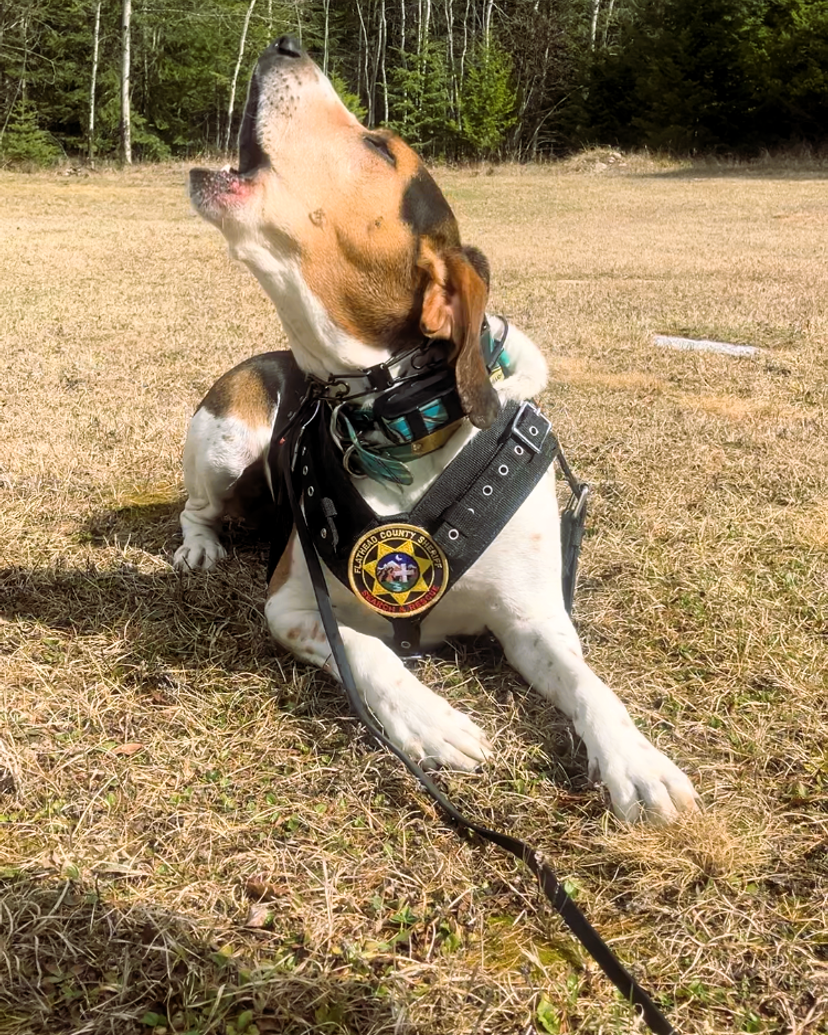
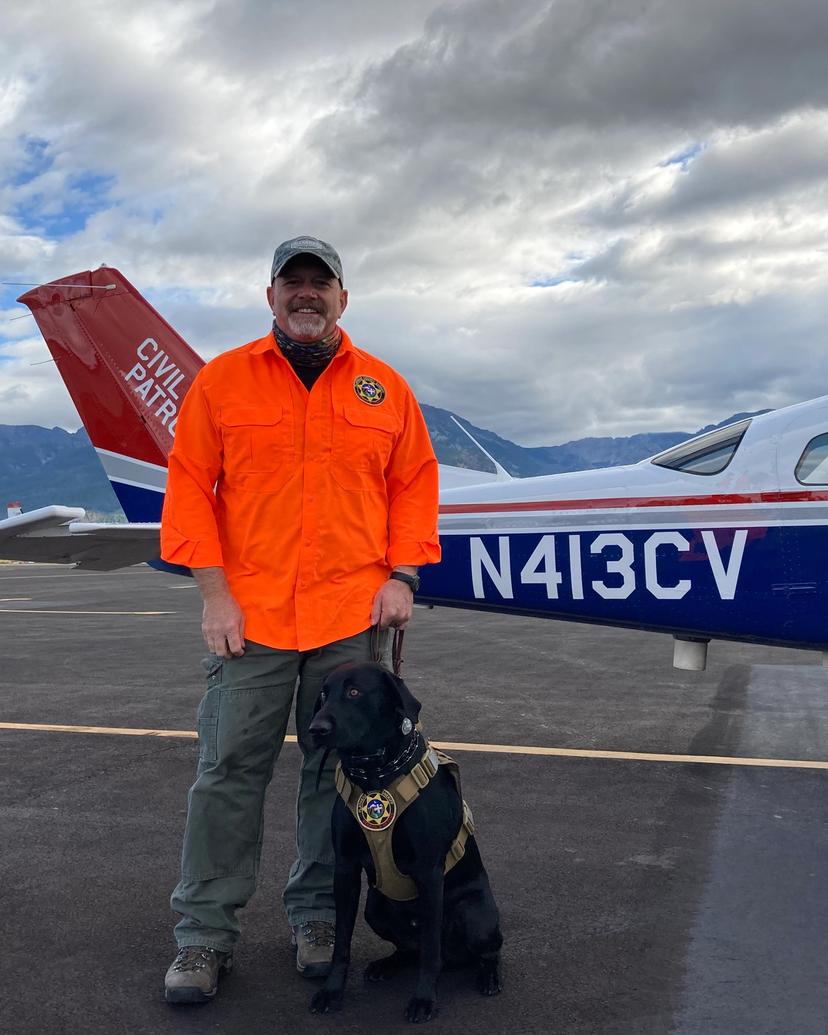
Deployment
All Search & Rescue and Law Enforcement K-9 teams are deployed through either the Flathead County Sheriff’s Office or a municipal police department. Deployments may be on foot, vehicle, boat, or aircraft. These teams are on call, ready to deploy 24/7 and 365 days per year. Many of the costs for Search & Rescue K-9 deployments, including mileage and per diem for meals and lodging, are reimbursed by the Flathead K-9 Foundation.